Nowadays, in this digital world, Software as a Service (SaaS) is a fantastic innovation in the world of business. This type of Data Processing is becoming gradually more popular especially for the remote work environment. One of the gifts of web technologies has been the migration of applications from local to server.In some remote work arrangements, employees are given SaaS solutions for the purpose of fulfilling certain needs while in some cases these solutions are offered as a privilege to employees who are involved in various projects or who have been transferred to another site but still have a job in the company.
- Accessibility from Anywhere: The fact that SaaS apps are not locally installed but hosted in the cloud is a crucial aspect of the whole system. This means that the remote staff can visit those applications by using computers, laptops, or even smart-phones connected to the network and communicating through the internet. As a result, the Information Technology sector is forced to re-think its role when their services are made available through the web. E-business depends on Information Technology. As the applications are placed in the cloud, the IT department is no longer the service provider.
- Collaboration and Real: Time Updates: SaaS solutions are solutions that are vendor-managed and the function of sharing and collaboration with the other users is done in real time which is the main factor for these solutions. Some other Web-based functionalities may include real-time document editing, project management tools, and instant messaging together with web presence. The organizations that engender these functionalities have competent structures that promote communication, separation, and cooperation in a remote work environment regardless of geographical limitations
- Enhanced Security Measures: The leading software as a service companies always take data safety seriously, by setting up such a strict system as encryption, multi-factor authentication, and regular security audits. These measures do a lot to cut risk connected with online work since these technologies secure sensitive information protecting it from unauthorized access or cyber threats, respectively.
- Improved Disaster Recovery: Cloud-based SaaS applications are ensured to include pre-built disaster recovery capabilities, that provides data backups and redundancy mechanisms. If something goes wrong like a natural disaster or a system crash, remote teams can quickly get back to work after a very short period of time and with almost no negative effects on the data in their systems.
- Integration with Third-Party Tools: Many of the SaaS platforms are already designed to support the smooth integration of other tools needed by the business. This functionality can be co-opted by remote teams that now not only can design their own way of doing the job but also reduce the number of existing processes and thus overall time by using a unified set of interconnected applications.
Summing up, SaaS solutions are the catalysts for remote workforces, turning them into the productive force and mobility needed to work together, stay productive, and overcome geographical constraints. In the expanding age of telecommuting, companies that adopt SaaS are in an advantageous position, due to the following advantages such as improved flexibility, cost reduction, and scalability.


 Impacts of AI on SaaS: The Facts You Should Be Aware Of
Impacts of AI on SaaS: The Facts You Should Be Aware Of  The Top SaaS Project Management Tools for 2024
The Top SaaS Project Management Tools for 2024  How SaaS is Changing the Financial Services Industry
How SaaS is Changing the Financial Services Industry  The Best SaaS Solutions for Automating Business Processes
The Best SaaS Solutions for Automating Business Processes  SaaS in Education: Transforming Learning and Administration
SaaS in Education: Transforming Learning and Administration  Optimizing Your SaaS Pricing Strategy
Optimizing Your SaaS Pricing Strategy